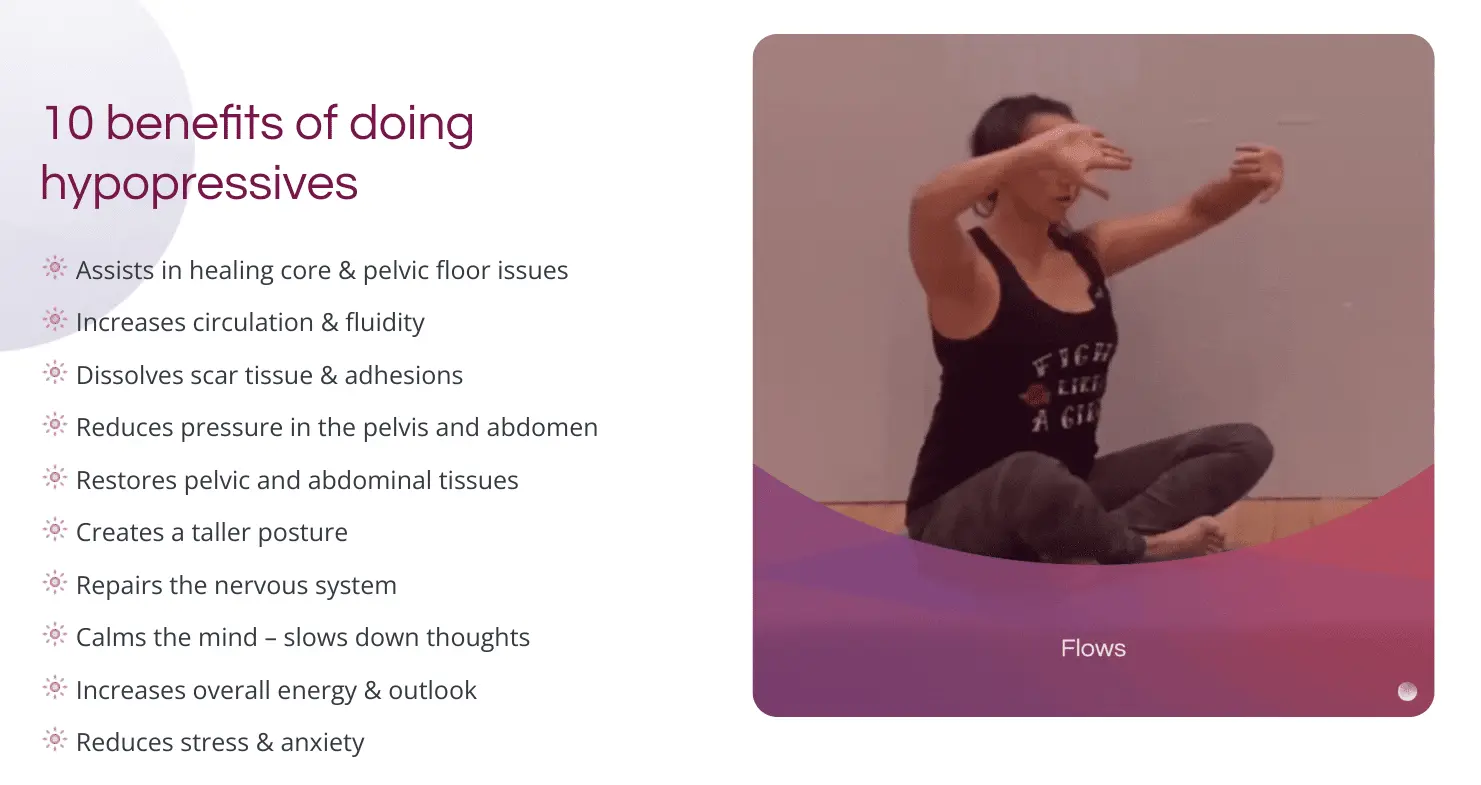Top 10 Homes Remedies ‘Believed’ To Tighten The Vagina
- June 6, 2022
- Vagina Health

Remedies to tighten the vagina – do they exist?
E.O Wilson, an influential biologist, said it eloquently…
“We are drowning in information while starving for wisdom.”
Today, we can find a vast number of resources on the internet, but discerning what’s true and what’s not has become difficult.
This includes the resources on natural remedies claiming to tighten your vagina. But how do you know if they’ll actually work?
Many women who want a safer alternative than surgery often go this route.
But again, given the volume of resources online, we feel it’s essential to look deeper into the well-known home remedies for tightening your vagina and give you our advice based on our experience and expertise.
But first…
What causes a loose or saggy vagina?
To set the record straight, it’s not due to frequent sex or a lack thereof.
The term “loose” vagina has been used to shame women for having multiple sexual partners or from having a lot of sex in general.
So, if you were told that too much sex makes your vagina “loose”, we must inform you that you were lied to. The truth is that sex has no effect on the size or strength of your vaginal opening.
It’s natural for your vagina to stretch when aroused — what’s not natural is painful sex. A tight vagina during intercourse could actually mean that you’re anxious or not turned on, so while your partner prefers the “tightness” this could be hurting you.
The correct medical term for loose / saggy vagina is “vaginal laxity” and it is caused by childbirth, ageing, and certain medical conditions. However, by creating a reflexive pelvic floor you can get your vagina back in good shape.
Here are some other factors that can influence vaginal laxity:
- Pelvic floor dysfunction (PFD)
- Menopause
- Previous pelvic trauma
- Regular intense exercise
- Frequent lifting of heavy items
- Previous gynecological surgery
Let’s take a moment to discuss vaginal laxity as it relates to pelvic floor dysfunctions and menopause.
Vaginal Laxity, PFD, & Menopause
Something that is seldomly discussed when it comes to sex – is arousal. And I’ll explain exactly how arousal is connected to laxity, PFD, and menopause.
What research has shown is that it takes, on average, 2 to 5 minutes for a man to be sexually aroused, whereas for women it can take up to 30 or 40 minutes. And this is even more true for women experiencing PFD or during menopause because it takes longer for their vaginal tissues to become aroused.
So vaginal laxity may be present for the simple reason that you are not aroused before having sex (i.e. before penetration occurs).
Top 10 Homes Remedies ‘Believed’ To Tighten The Vagina
Vaginal “looseness” is more than just a cosmetic issue. Although some women want to keep their vagina extra “tight” to please their partners, others have a really unsatisfied sex life because their vaginal walls are less sensitive to sexual penetrations or are experiencing pain because of it.
But no matter how tempted you are to try a cheap and quick way to tighten your vagina, please don’t do it.
Some ‘natural remedies’ can be misleading! Even though fruits, vegetables, and spices are natural ingredients and safe to eat, that doesn’t mean they can be effective for your vagina. And it’s possible they might even cause infections that were not there in the first place.
Top 10 home vagina tightening remedies
1. Lemon Juice
Despite lemon’s numerous health benefits when taken orally, lemon juice may cause pain, irritation, and inflammation when directly applied to the vagina, vulva, and labia.
So while some women claim it can help them, it may not be a remedy that works for everyone.
2. Aloe vera
Aloe vera gel is known for its lubricating properties among other health benefits, such as providing a sense of calm. But, like many women’s health concerns, there is not a lot of scientific research and for some topics, there is none at all. And this is especially true on the topic of tightening the vagina.
But some women we’ve worked with at MoonRise, get great benefits from using aloe vera for the reasons mentioned above.
3. Epsom Salt
Also called “bath salt”, magnesium sulfate or Epsom salt is known to relieve different ailments including swelling, muscle aches, sprains, and bruises.
In addition, using this remedy helps shift the body into the parasympathetic nervous system, which is the healing nervous system. When your body is in this state, homeostasis happens a lot easier – allowing healing to occur. And not just of the vagina, but anything that is out of tune or balance.
4. Cinnamon
Cinnamon is a common spice used for baking and cooking. Based on different studies, it also has antioxidant, anti-inflammatory, anti-diabetic, anti-cancer, and antimicrobial properties.
Cinnamon taken together with milk has been used to boost libido. Whether this may work for you or not, is up to you to try. In either case, you will get to enjoy a delicious-tasting beverage.
5. Turmeric
Also known as the “Golden Spice” or “Indian Saffron”, turmeric is famous for its numerous health benefits that have been widely studied and proven effective for years.
However, until now, no research can confirm that turmeric (regardless of its method of application) can tighten the vagina. Yet, it’s safe to try if this is something that is of interest to you.
6. Cloves
Although researchers found that cloves are good for mouthrinse, there’s no scientific evidence that a clove rinse will help tighten your vagina. But again, there is very little research done on natural home remedies, especially in relation to how they can benefit a woman’s vagina.
7. Vinegar
Some women use vinegar, such as apple cider vinegar, in an herbal steam bath for their vaginas. This ancient practice of vaginal steaming has been around for thousands of years and can be used for a variety of women’s health issues, but is especially useful to do after giving birth.
In my experience and many of the women I work with, this is not only a highly effective method but a relaxing and enjoyable one too.
8. Herbs & Spices
Gooseberries, witch hazel, black cohosh, asparagus, and garlic are all beneficial to our health and are often consumed through food or beverages. They can also be used in essential oils or vaginal steaming.
Again there is no scientific proof that herbs can provide “firmness” to the vagina, but again it works for some women and if it feels right for you to try, then trust your gut.
9. Wasps nest
Oak galls are tree deformities caused by wasp nests. The thought or visual of this may not sit right with everyone, however, those who’ve tried it claim it can tighten the vagina, cure UTIs, and get rid of vaginal odor.
We don’t personally recommend this to our customers, only because of the lack of experience we have with this method. Ultimately, the choice is yours whether this sounds like something you want to try.
10. Hot shower
Although a hot shower feels good and helps relieve muscle tension before sleeping, there is no evidence that it can tighten the vagina. Yet, a warm or hot shower can be so relaxing, because it slows our mind down and brings us to the present moment. This is a great recipe for healing.
Is vagina tightening surgery worth it?
Surgery sounds like an easy fix but it does not guarantee a healthy vagina.
And of course, there are always risks and usually a long list of potential side effects. Plus, the real reason for having a “loose” or “saggy” vagina could be due to a weak, and tense pelvic floor which cannot be fixed with surgery.
Also, it’s important to note that surgery creates scar tissue and adhesions, leading to poor circulation, less fluidity, less connection with the nerve endings, dysfunctional fascia, and imbalanced tissue. When this happens symptoms can worsen, either in the short term, in the long term, or both.
What about topicals: do vaginal tightening creams work?
Contrary to their marketing claims, vaginal tightening creams either dry out your mucosa which is responsible for producing natural lubrication, or causes swelling which can be misinterpreted as “tightening.”
Although, without enough lubrication, your vagina will eventually hurt and may even result in tearing, making it more prone to infections and irritations.
So before asking your physician for a vaginal cream, you can try safe alternatives to heal the cause of the laxity, like those listed in the next section.
Do Kegels help tighten your vagina?
Kegels can do more harm than good when used inappropriately and excessively, especially if you already have tight pelvic floor muscles.
Instead of Kegels, there are safer and better alternatives to give you a reflexive pelvic floor. And to do this, we need to create more circulation in this area. While Kegels do this, most women do too many Kegels and for too long, creating excess pressure and tension.
Also, when scar tissue and adhesions are present (which is the case with PFD), Kegels won’t address this. But, these other methods do:
- Hypopressives
- Scar tissue massage
- Yoga or Pilates
- Yoni or vaginal steaming
- Belly dancing
- Homeopathy
- Block Therapy
- Mediations
- Affirmations
- Visualizations
Why do people recommend these ‘home remedies’ for vagina tightening despite the risks of possible side effects?
There are several possible reasons why women try or continue using home remedies despite the lack of scientific proof:
1. A misconception that it’s safe because it is advertised by celebrities and influencers publicly.
2. It’s cheap and more accessible than vaginal rejuvenation using laser treatment and surgeries.
3. Their peers have been using it and declared it has worked for them.
4. Misinformation from seemingly reliable sources.
5. Belief that it wouldn’t hurt to try because it’s “all natural”.
6. Today’s stigma and expectations of how women should look, can also take a toll on us. And we may get pressure from our partners to have a tighter vagina, which also takes its toll.
But if you want to keep your vagina in good shape and healthy for yourself first, then there’s great! But please DO NOT risk your health for a false hope that this quick solution ‘might tighten’ your vagina. Leave that to experts with vast knowledge and extensive experience in determining safe and effective treatments.
Instead, use…
Natural, Safe and Effective Ways to Keep Your Vagina in Good Shape

You have to understand that taking care of your vagina is part of the whole picture. Just like man, no organ is an island. Because every part of your body is linked to one another, so it’s essential to find the root cause before pursuing a course of action.
This means finding out what caused your vagina to lose its elasticity. Is it because of childbirth? Ageing? A medical condition? A previous surgery or pelvic trauma? Or from the misconception of having too much sex?
Not to worry though because there are natural, safe, and effective practices — lots of them in act — that can keep your vagina in top condition:
• Myofascial massage – applies pressure on targeted areas of the fascia that surround your muscles and bones so you can move more freely.
• Hypopressives – a series of breathing and postural exercises to improve your overall pelvic floor health.
• Yoni steaming – involves sitting over warm herbal-infused water to relax your pelvic floor muscles.
• Block Therapy – a combination of blockwork and diaphragmatic breath that focuses on the fascia, which will help strengthen your pelvic floor for good vagina health.
• Clean Eating – this will support your body’s nutritional needs which in turn decreases unnecessary stress and imbalances.
• Visualization and Affirmations – works by seeing and affirming your desired outcome, such as optimal health or a good sex life.
Vagina Tightness and Your Sex Life
Sex is a two-way street. And though a “tight” vagina could increase sexual sensations, surely, it is not the only way to enjoy an intimate time with your partner.
Here are other ways that might help improve your sex life:
• Educate – your partner needs to know what causes a “loose” vagina as much as you do.
• Try something new – explore sexting, foreplay, or new positions to spice things up.
• Communicate – sex is better when you can fully trust and be vulnerable with your partner; and
• Love yourself – being confident in your own skin makes a huge difference and is a turn on to your partner.
A “loose” vagina is neither a sign of infidelity nor something you should be worried about unless it’s causing pain or discomfort. There’s no need to fix something that’s not broken.
What matters most is how you feel about yourself and to be sure your vagina is healthy and properly taken care of as it’s a sacred part of you.
Don’t settle for cheap yet unproven home remedies!
Your vagina is an amazing and divine part of your body that has a beautiful purpose and function, so keeping it healthy is a lifelong commitment.
We understand that in many countries and cultures, women’s reproductive health is still a taboo subject. This is why it’s important to find the right community for you, one where you’ll be heard, accepted, and guided.
This is what we offer in our Pelvic Floor Dysfunction Program where you’ll learn lots of incredible healing methods to care for your vagina and your entire body’s health and well-being.
Want to learn more about this program and these incredible healing methods? Then join me Live for a FREE Webinar where I’ll talk all about this!
Blog posts you might like:






